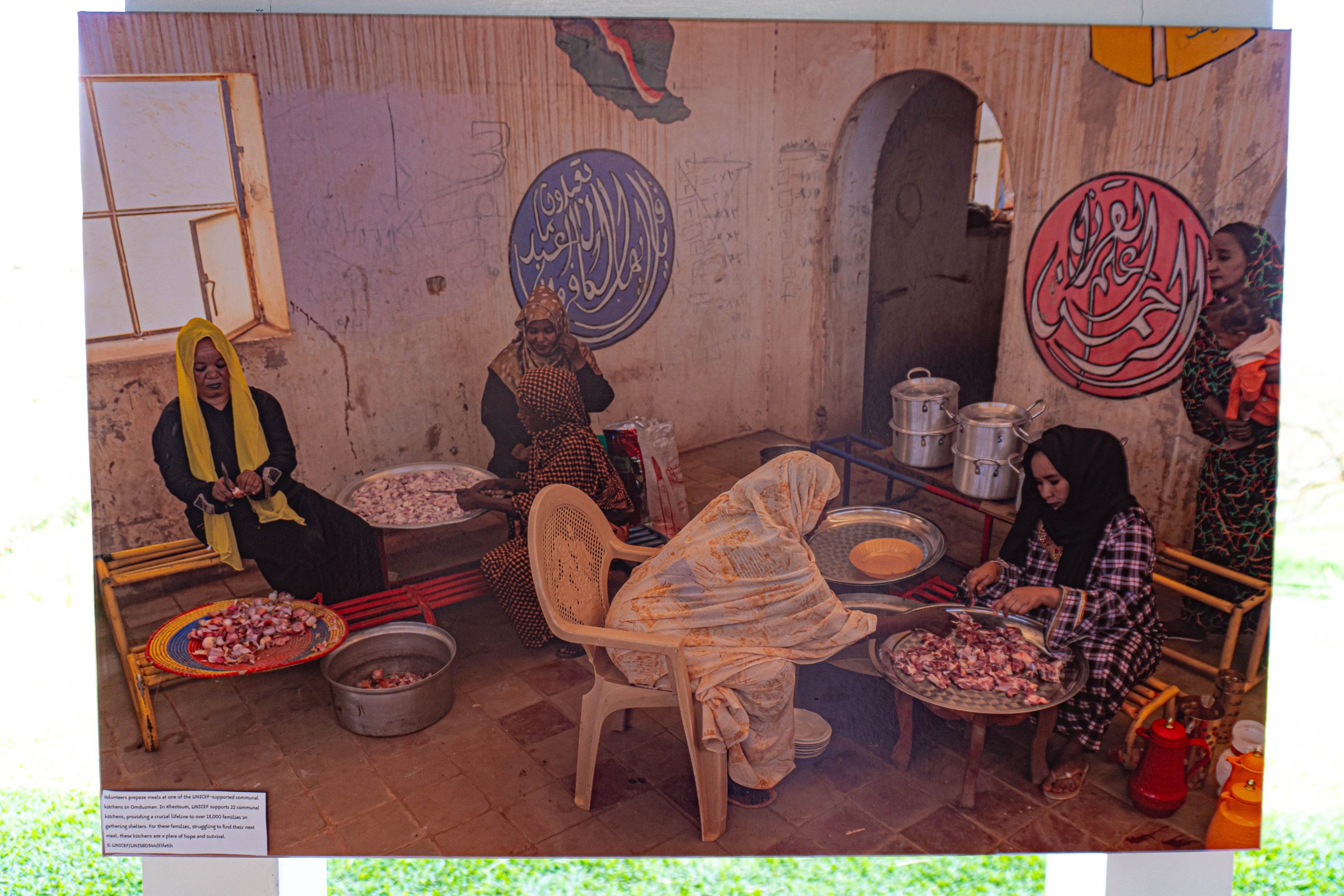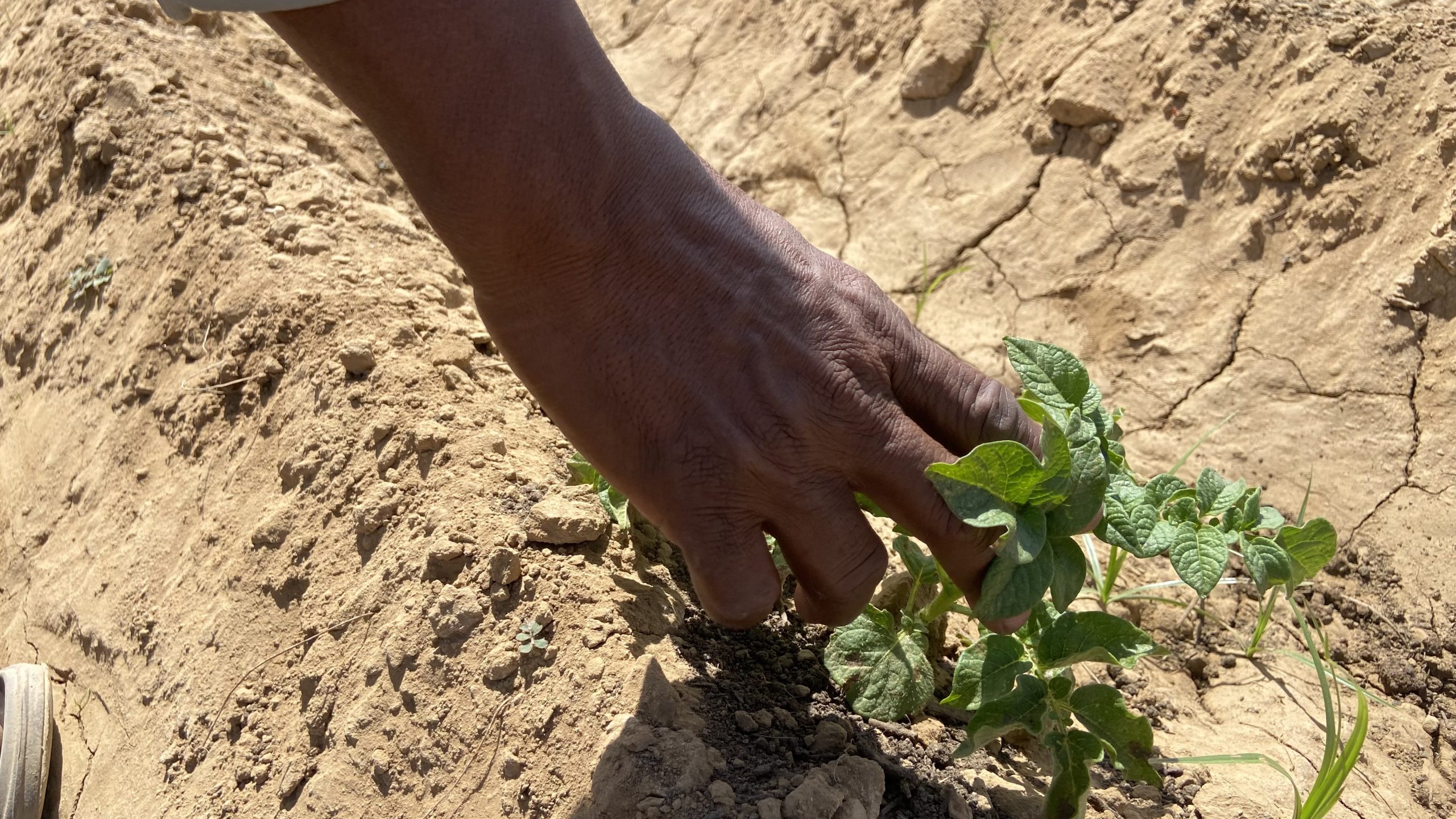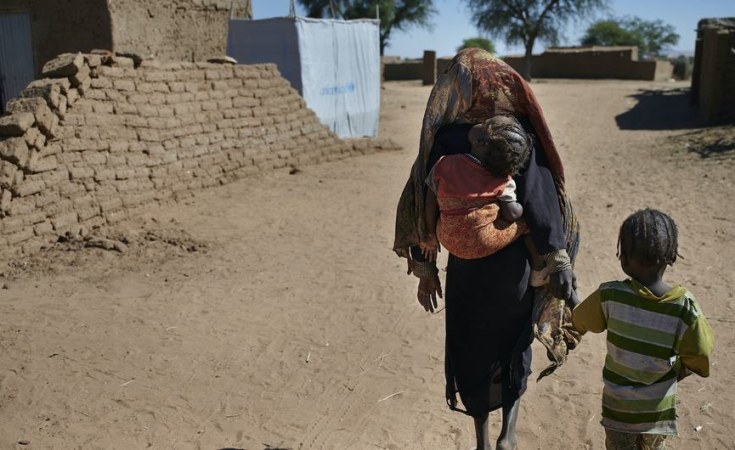Fatima Ali, a 48-year-old displaced woman in war-torn Sudan, takes shelter in a school at Kassala, East Sudan. She struggles to feed her five children and lives in dire conditions. Recently, Fatima participated in a training program in household farming, organized by the International Potato Center (CIP) and the Sudanese agricultural community Alzereea Alsudani (AZAS), where displaced community members were guided to build small gardens and cultivate potatoes to meet their food needs.

“I encouraged my 13-year-old daughter Shima to participate in a training to produce potatoes for household consumption. She was very interested and active,” said Fatima.
The training marked the International Day of Potato, celebrated on 30 May. CIP and AZAS trained displaced children of Kassala to grow potatoes at home using plastic and jute bags.
“We learned how to cultivate potatoes using plastic bags, and it was fun. We now know that potatoes are rich in nutrients and can be used to cook a variety of dishes. I am glad that I can cultivate potatoes and help feed my family,” said Shima.

Underscoring the potential of potatoes
The International Day of Potato highlights the multiple nutritional, economic, environmental and cultural values of the crop and its contribution as a unique food resource and a generator of income for rural families and producers. This is aligned with the United Nations Sustainable Development Goals (SDG) of transforming agrifood systems to be more efficient, inclusive, resilient, and sustainable.

The theme for the 2024 event was ‘Harvesting Diversity, Feeding Hope’. The focus was on the importance of having a wide variety of potato types versus over-reliance on a few varieties that can expose the crop to pests and diseases. With over 5,000 different kinds of potatoes worldwide, including both improved varieties and traditional types grown by farmers, the crop can meet the needs of different farming methods, cooking styles, and industrial uses.
To highlight the importance of potato and its riches, CIP and AZAS organized orientation sessions with housewives and chefs from local restaurants in Kassala. The discussions reflected on the nutritious values of potatoes and how they can be integrated into everyday meals.

During the discussion, nutrition experts explained how potatoes are rich in vitamins, minerals, and fiber essential for a balanced diet. The chefs shared how potatoes are extremely versatile in the kitchen; they can be baked, boiled, grilled, fried, steamed, or processed into various dishes.
Working with partners for maximum impact
Potato is an important staple food that can ensure food security in Sudan and combat hunger. CIMMYT’s partners CIP, Mercy Crops, and Practical Action are leading the potato and sweet potato component of SASAS, along with other private partners.
With funding support from USAID, SASAS partners are working with farmers and private sector to increase potato and sweet potato production in Kassala and Blue Nile states of Sudan. By using verified potato varieties and introducing new cultivation techniques, the program aims to achieve SDG goals and enhance food security in Sudan.

“We work with our partners and private sector to help Sudanese farmers integrate potato and sweet potato into their agricultural production systems,” said Abdelrahman Kheir, SASAS lead in Sudan.
He added that potato is an exceptionally resilient plant that can thrive in a variety of climates across the country. “We use modern cultivation techniques and certified potato varieties to increase production. We are also enhancing the value chain and enlarging cold storage capacities,” he said.
The value of the project truly lies in its collaboration with private sectors and innovation partners to ensure at-scale and adept responses for stakeholders and dynamic situations in target areas.

 Climate adaptation and mitigation
Climate adaptation and mitigation 
